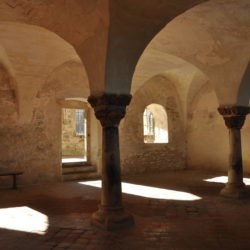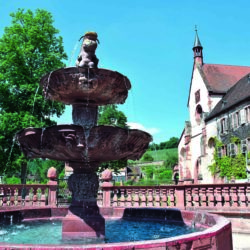 March 8, 2023 12:48 pm
Published by Klosterland
March 8, 2023 12:48 pm
Published by Klosterland
Habent sua fata et horti – Gardens, too, have their fate. This thoughtful, somewhat transformed aphorism came to my mind when I visited the abbey garden at Bronnbach Monastery. I had been there before, but when I returned to the lovely Tauber valley, I could admire the garden for the first time in its newly revived and fully restored splendour.
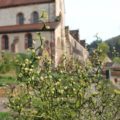 February 27, 2023 10:25 am
Published by Lara Buschmann
February 27, 2023 10:25 am
Published by Lara Buschmann
Monastery gardens have changed over the centuries, which makes it difficult to gain a historical perspective on gardens that no longer exist, such as those of the Middle Ages. However, preserved historical documents may provide a glimpse of what monastery gardens of bygone times might have looked like. This is where the search for their traces begins.
 July 23, 2021 2:56 pm
Published by Berlind Brodthage
July 23, 2021 2:56 pm
Published by Berlind Brodthage
In the tradition of the old monastic orders, the monastery garden is one of the most important facilities which as a whole make up a monastery: the church, the cloister, the monastic cells, the library, the chapter house, the guest house, the infirmary and just that garden.
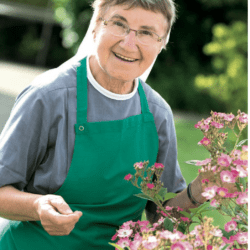 December 21, 2020 11:04 pm
Published by Lara Buschmann
December 21, 2020 11:04 pm
Published by Lara Buschmann
Living in the tradition of St. Francis, the Sisters of Reute Monastery feel united with Creation in a special way. This can be best viewed in their paradisiac garden.
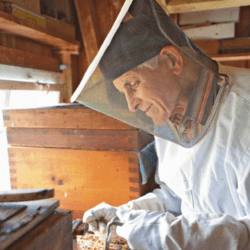 December 21, 2020 10:00 pm
Published by Lara Buschmann
December 21, 2020 10:00 pm
Published by Lara Buschmann
The garden of the Archabbey of Beuron is embellished by a stunning apiary hosting 15 bee colonies and providing many colourful landing zones for the bees. It is the unquestioned domain of Brother Siegfried who is in charge of the bees.
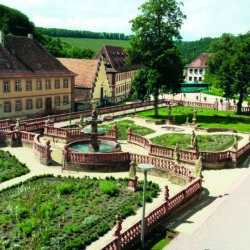 August 12, 2020 11:21 am
Published by Lara Buschmann
August 12, 2020 11:21 am
Published by Lara Buschmann
Die Gärten der Klöster besitzen nicht selten Bezüge zu Bibel, christlichem Glauben und Theologie. Diese reichen vom biblischen Paradies, dem Garten Eden bis zum Grab Jesu, das in einem Garten lag. Glaubensüberzeugungen wie die Hoffnung auf ein Weiterleben nach Tod drücken sich u.a. in der Nutzung eines klösterlichen Obstgartens als Friedhof aus, einem Ort des Todes, der Früchte bringt. Heute sind Klöster beliebte Ausflugsziele und Erholungsräume für Gäste. In ihren Gartenanlagen können die Besucher*innen biblische und theologische Motive wiederentdecken und ein Stück vergangener und gegenwärtiger Klosterkultur erleben.






